Strategic Analysis Caucasus Brief
Monthly review of August 2022
Tomáš Baranec
Armenia

Vardenis mountains landscape, Armenia. Photo: Keshishyan Avetis/ Shutterstock.com
Local experts criticise Armenia‘s plan to establish a National Guard
As part of a broad security sector reform, Armenia plans to set up a new National Guard force to protect high-ranking officials and state facilities, informs Eurasianet.org. Local experts warn that the planned structure resembles Russian Rosgvardia and might be used to squelch protests.
Deputy chief of police Ara Fidanyan stated on July 12 that the National Guard should be formed on the basis of the Police Troops and the State Security Service. According to him, this National Guard will not have the status of the Internal Troops, and its activities will not be regulated by the law related to the activities of the Armed Forces of Armenia.
“The creation of National Guard units is also assumed in some provinces of the country. They will be responsible for maintaining public order and public safety. In particular, we are talking about ensuring the security of various state agencies, organisations, important facilities, high-ranking officials, and foreign delegations. The [National] Guards [of Armenia] will accompany the prisoners, participate in ensuring the legal regime in military and emergency situations, as well as in antiterrorist operations,” Fidanyan explained.
As Eurasianet.org stressed, the National Guard that Fidanyan described resembles that set up by Russia in 2016, and officials have said that the security reform package has been discussed with Moscow, Armenia’s military ally. Analysts suggested that the move was motivated by the government’s decreasing popularity in the wake of the 2020 defeat in the war against Azerbaijan. Since then, it has faced an open rebellion from senior military officers and a sustained protest movement organised by the political opposition.
“The realities have changed for the government; they don’t have the support and sense of security they had back in 2018” when they came to power, said independent military expert Leonid Nersisyan. “Creating a department like this [the National Guard] can guarantee that they can gather loyal people around them.”
“Rosgvardiya didn’t do well in Ukraine, but it sure did well in shutting down demonstrations,” Nersisyan told Eurasianet. It is against Armenian law to use the military domestically, which could be part of the government’s calculation, he said. “As for Armenia’s national guard, you can get loyal people, equip and pay them better. Moreover, if you ever need to break up a protest, you can use them instead of the military since the use of the military is illegal.”
Political scientist and member of the expert club “Voice of the People” (Armenia) Arman Ghukasyan added that the national guard should be subordinated to the Ministry of internal affairs, which does not exist in Armenia right now but is planned to be established this autumn.
Sources:
- MEJLUMYAN Ani, Eurasianet.org, „Armenia to set up National Guard“, https://eurasianet.org/armenia-to-set-up-national-guard
- News.am, „Deputy Police chief: National Guard planned to be established in Armenia“, https://news.am/eng/news/711509.html
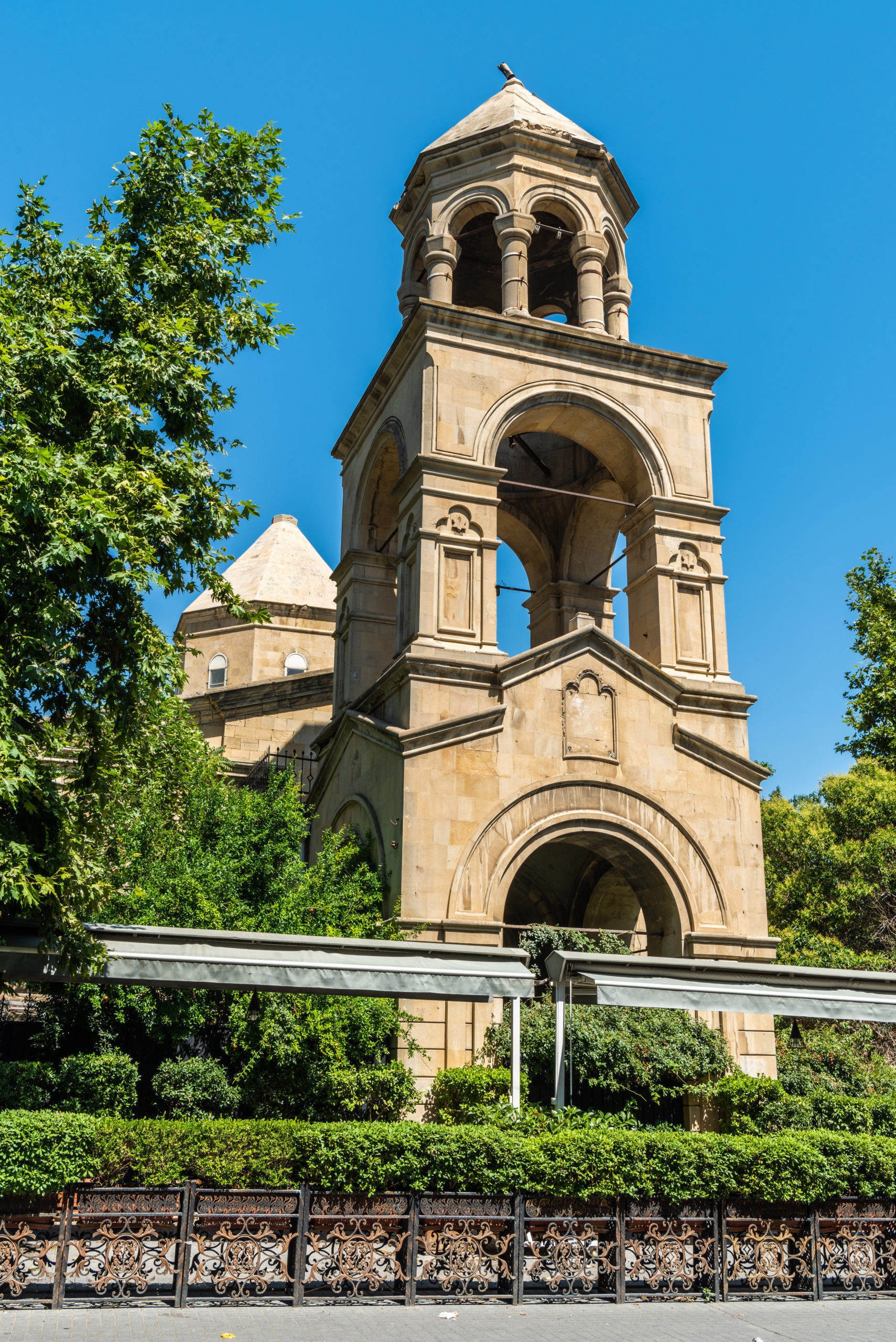
Baku, Azerbaijan. Photo: Alizada Studios/Shutterstock
Armenian government considers the opportunity for early release of rich conscripts
Drawing strong condemnation from opposition leaders, the Armenian Defense Ministry has proposed significantly shortening compulsory military service for conscripts willing to pay a hefty fee, reports Azatutyun.am. Current Armenian law requires virtually all men aged between 18 and 27 to serve in the armed forces for two years. A Defense Ministry bill circulated on August 24 would allow draftees to do only a four-and-a-half-month service in exchange for paying the state 24 million AMD (60.000,-USD).
As OC Media writes, the Ministry of Defence explained that the logic behind the move was that 24 million AMD would be enough to pay a contract soldier 400,000 AMD (1.000 USD) per month for five years. The Ministry said increasing pay for contract soldiers was “the most important motivational component of introducing a professional military service system”. A scheme in which conscripts can extend their service to three years in exchange for a monthly 100 USD stipend and certain other benefits has failed to attract candidates. Currently, only three people are participating in the programme, with no new applicants between 2021 and 2022.
The Ministry said it wanted to replace the programme with 5-year paid service contracts, the money for which is expected to come from payments for early discharge.
Armenia’s leading opposition parties rejected the proposed arrangement as unfair and dangerous for national security. “With this draft law, the authorities want to ensure that in the Republic of Armenia, two-year compulsory military service is performed only by those who cannot afford to pay tens of thousands of dollars for exemption,” said Gegham Manukian of the opposition Hayastan alliance. This could only deepen inequality in the country, he added. Tigran Abrahamian, another opposition lawmaker, likewise warned of the emergence of a new social division. He also said that the authorities could find other sources of financing for military pay increases. “It is not that there is no money in the country that can be used for raising contract soldiers’ wages,” said Abrahamian.
Also, some local civil society representatives stressed their dissatisfaction with the project. Daniel Ioannisyan, a local democracy watchdog, called the bill a “shamefully awful idea” that will “deepen social stagnation and will negatively affect security, public solidarity, and justice”. Ioannisyan assumed that the bill might cause more “polarisation “and even “socially based hatred”. “There is a problem with social rights in the country. Many things can or are forgiven to the rich (thanks to ties, corruption, expensive attorneys, amounts of fines, etc.) that are not forgiven to the poor”. Ioannisyan wrote on Facebook, “This project only legitimises this inequality. Essentially it turns out that yes, the rich are truly privileged”’.
JAM News, on the other hand, drew attention to the fact that many ordinary Armenians on social chose a more pragmatic approach and supported the bill. On social networks, people write that one way or another, the children of wealthy people do not serve: “There are many reasons for this – “health problems” up to mental health. So let them replenish the state budget,” wrote one of them. “Even if one of the sons of rich and wealthy people serves in the army, then this is something like VIP service. You could say they become a burden for the army,” added the other.
Sources:
- NALBANDIAN Naira, Azatutyun.am, „Armenian Military Proposes Shorter Service For Cash“, https://www.azatutyun.am/a/32004653.html
- AVETISYAN Ani, OC Media, „Armenian MoD proposes $61,000 fee to avoid conscription“, https://oc-media.org/armenian-mod-proposes-61000-fee-to-avoid-conscription/
- JAM News, “’The rich don’t have to serve in the army?‘ – a new project of the Armenian Defense Ministry under scrutiny“, https://jam-news.net/the-rich-dont-have-to-serve-in-the-army-a-new-project-of-the-armenian-defense-ministry-under-scrutiny/
Azerbaijan captures additional territory in Karabakh
On August 3, Azerbaijan announced a “Retribution” operation in Nagorno-Karabakh in response to the alleged killing of an Azerbaijani serviceman. As a result, Azerbaijani Army gained control over significant heights that ensured control over strategically essential roads on the border.
Azerbaijan’s Ministry of Defense said in an August 3 statement that during the operation, “several combat positions of illegal Armenian armed detachments were destroyed, and an airstrike was inflicted on a military unit. … As a result, the manpower of illegal Armenian detachments was annihilated and wounded.” It did not report any injuries on the Azerbaijani side.
Karabakh’s armed forces reported that two of its soldiers were killed and 19 wounded as a result of fire from artillery, grenade launchers, and armed drones. Most of the injured were wounded as a result of drone strikes, Karabakh’s human rights ombudsman said. The territory’s de facto leader, Arayik Harutyunyan, declared a partial military mobilisation.
Azerbaijani officials and pro-government commentators said that the offensive was the result of Armenia’s failure to withdraw its troops from its protectorate of Nagorno-Karabakh. That pullout was one of the conditions of the ceasefire agreement that ended the 2020 war between the two sides, and on July 19, Armenia said the withdrawal would be complete by September.
“What are illegal Armenian armed units still doing on Azerbaijan’s internationally recognised territory?” asked Azerbaijani diplomat Nasimi Aghayev on Twitter, as cited by Eurasianet.org. “They should all have been withdrawn in line with [the ceasefire] statement. Armenia didn’t do it and bears all responsibility for current tension in the region,” wrote the Azerbaijani diplomat.
The advancement of the Azerbaijani army seems to have strategic military implications. “The August 3 hostilities in Karabakh became the largest since the end of the 44-day war in the fall of 2020,” Azad Isazade, a military expert, a former employee of the Information and Analytical Department of the Azerbaijani Ministry of Defence (MoD), told the “Caucasian Knot” correspondent. As a result, the Azerbaijani Army occupied a number of dominant heights that allowed it to establish visual and fire control over key transport communications in the region and prevent any significant redeployment of troops and thus forestall enemy attacks, Mr Isazade has stated.
On August 5, the Russian MoD reported on its website that over the past 24 hours, four violations of the ceasefire regime by the Azerbaijan Armed Forces were recorded in the responsibility zone of Russian peacemakers.
Meanwhile, at the rally in Stepanakert, more than 50 locals urged Russian authorities to influence Azerbaijan to de-escalate the Karabakh conflict and ensure local residents’ safety.
“After the [2020] war, Russian President Vladimir Putin said that thanks to the Russian peacemaking contingent, Armenians of Nagorno-Karabakh would live in security and dignity. Today, we want to understand Russia’s role in the region and demand from Russia to force Azerbaijan to comply with the provisions of the tripartite agreement,” Arthur Osipyan, one of the organisers of the action, said.
Sources:
- ISAYEV Heydar, KUCERA Joshua, MEJLUMYAN Ani, Eurasianet.org, „In renewed fighting, Azerbaijan captures additional territory in Karabakh“, https://eurasianet.org/in-renewed-fighting-azerbaijan-captures-additional-territory-in-karabakh
- Caucasian Knot, Operation in Nagorno-Karabakh improves Azerbaijan’s strategic dominance, https://www.eng.kavkaz-uzel.eu/articles/60935/
- Caucasian Knot, Russia’s MoD finds four violations of the ceasefire regime in Nagorno-Karabakh, https://www.eng.kavkaz-uzel.eu/articles/60932/
- Caucasian Knot, „Analysts treat Nagorno-Karabakh’s status as a reason for conflict escalation“,www.eng.kavkaz-uzel.eu/articles/60954/
- Caucasian Knot, Residents of Stepanakert, called on Kremlin to put pressure on Azerbaijani authorities, https://www.eng.kavkaz-uzel.eu/articles/60944/
For additional reading, see:
- SHAHVERDYAN Lilith, Eurasianet.org, „Karabakh residents increasingly questioning Russian peacekeepers’ effectiveness“, https://eurasianet.org/karabakh-residents-increasingly-questioning-russian-peacekeepers-effectiveness
Shiite protest group breaks into Azerbaijani Embassy in London
On August 4, a radical religious group Mahdi Servants Union (MSU), attacked and briefly occupied Azerbaijan’s embassy in London, chanting slogans and replacing the Azerbaijani flag with one of their own.
Several men stormed the embassy building, climbed up the balcony with a ladder, wrote slogans in Arabic on the wall, and hung religious posters. Eight people were arrested following the incident, London police reported.
The day earlier, the MSU had posted a statement on its website saying that the group’s leader, Kuwait-born Yasser Al-Habib, had been “informed” about the “persecution” of a woman in Azerbaijan who had written Shiite slogans on the outside of her home and raised a Shiite flag. According to the statement, Azerbaijan’s Interior Ministry said that the act amounted to “extremism” and that “raising any flag other than the national flag was unacceptable.”
According to its website, Mahdi Servants Union is a Shiite group that seeks “civilisational dominance” and has accused Azerbaijan of persecuting Shiite Muslims. The group said it was taking “urgent action” against the country’s government.
While Baku typically blames Iran for fomenting Shiite radicalism in Azerbaijan, the MSU and Al-Habib have clashed with Tehran. An affiliated group carried out a similar attack on Iran’s embassy in London in 2018.
It is unclear whether the group has any presence in Azerbaijan, and most of its messages have been written in Arabic. The most prominent Shiite radical group in Azerbaijan, the Husayniyyun, claimed that the Azerbaijani and British governments coordinated the attack to repress Shiite Muslims. Azerbaijan’s government blamed the UK for lax security in allowing the attack to happen, reports Eurasianet.org.
Sources:
- SAYEV Heydar, Eurasianet.org, “Extremist religious group attacks Azerbaijani embassy in London“, https://eurasianet.org/extremist-religious-group-attacks-azerbaijani-embassy-in-london
- Arab News, “Shiite protest group breaks into Azerbaijani Embassy in London“, https://www.arabnews.com/node/2136716/world
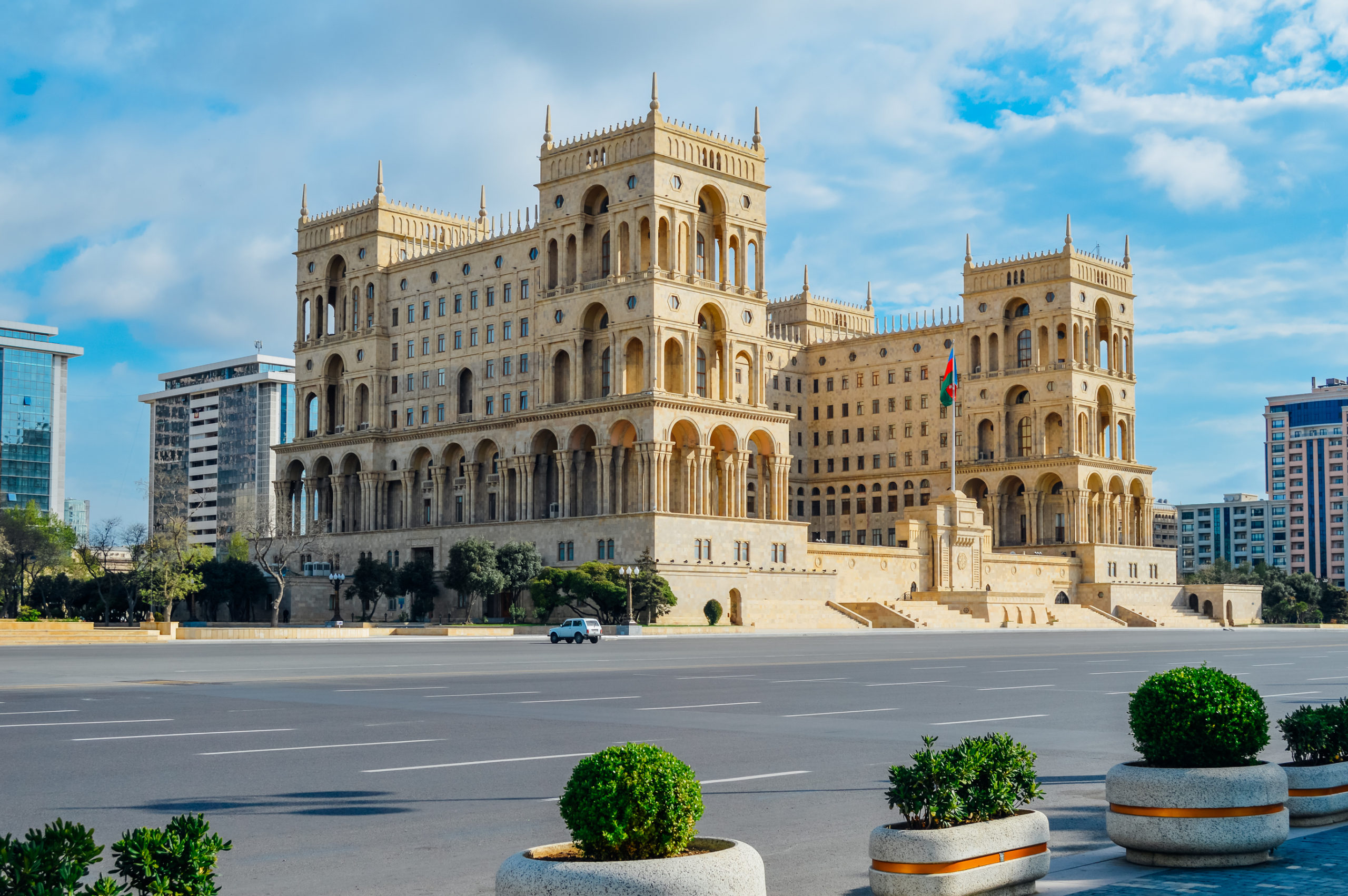
The Government house, Azerbaijan. Photo: Andrii Lutsyk/Shutterstock
Azerbaijan takes control over the Lachin corridor
Azerbaijani president Ilham Aliyev has announced that the Azerbaijani armed forces have taken control of the city of Lachin (Berdzor) and two nearby villages after the deadline passed for their Armenian inhabitants to leave, writes the OC Media.
The handover of Lachin, Aghavno (Zabukh), and Nerkin Sus (Sus) was part of the November 2020 ceasefire agreement, which stipulated that a new route for the Lachin corridor be created.
One of the provisions of the 2020 ceasefire statement was that a new Lachin corridor would be planned “within the next three years” and that when it was, the Russian peacekeepers that had protected the old route would shift to that one, allowing for Azerbaijani forces to take control.
Despite that, earlier this year, Azerbaijan demanded the handover be completed as Azerbaijani forces clashed with soldiers from the Nagorno-Karabakh defence forces in the area. The clashes left at least seven people dead.
But on the deadline day, both sides reported that the new road had been delayed: Karabakh’s de facto Interior Ministry announcedthat the current road would function until August 31 and would be protected by the Russian peacekeepers. Both sides said the issue was a segment of fewer than five kilometres that should be ready in the coming days.
Despite the road construction delay, Azerbaijan’s defence ministry released a video of troops entering the district capital of Lachin on August 26. “Azerbaijanis have returned to the city of Lachin,” President Ilham Aliyev said in a tweet. “I congratulate all the people of Lachin and the people of Azerbaijan on this occasion. Long live Lachin! Long live Azerbaijan!”
The leadup to the handover of the three communities was chaotic and emotional, as the more than 400 Armenian residents were given mixed messages and then a tight deadline to leave their homes. Armenians had settled the territory after they took control of it in the first war between the two sides in the 1990s, with most coming from Armenia and some from Armenian communities in Syria and Lebanon.
The de facto Karabakh government promised to give residents money to buy a new home elsewhere, and in the final days ahead of the deadline, began cutting off utilities like power and water. Most of the residents of the dwelling settlements of the Lachin Corridor, who were ordered to leave their houses before August 25, decided to settle in the Syunik Region of Armenia; 20 families have already been settled there, local authorities have informed, writes Caucasian Knot.
Sources:
- NATIQQITZI Ulkar, SHAHVERDYAN Lilit, Eurasianet.org, „Azerbaijan retakes control of three Karabakh settlements“, https://eurasianet.org/azerbaijan-retakes-control-of-three-karabakh-settlements
- AVETISYAN Ani, OC Media, „Azerbaijan takes control of Lachin as the deadline for Armenians to leave passes“, https://oc-media.org/azerbaijan-takes-control-of-lachin-as-deadline-for-armenians-to-leave-passes/
- Caucasian Knot, „Twenty families from Akhavno and Berdzor, accommodated in Syunik Region“, https://www.eng.kavkaz-uzel.eu/articles/61122/
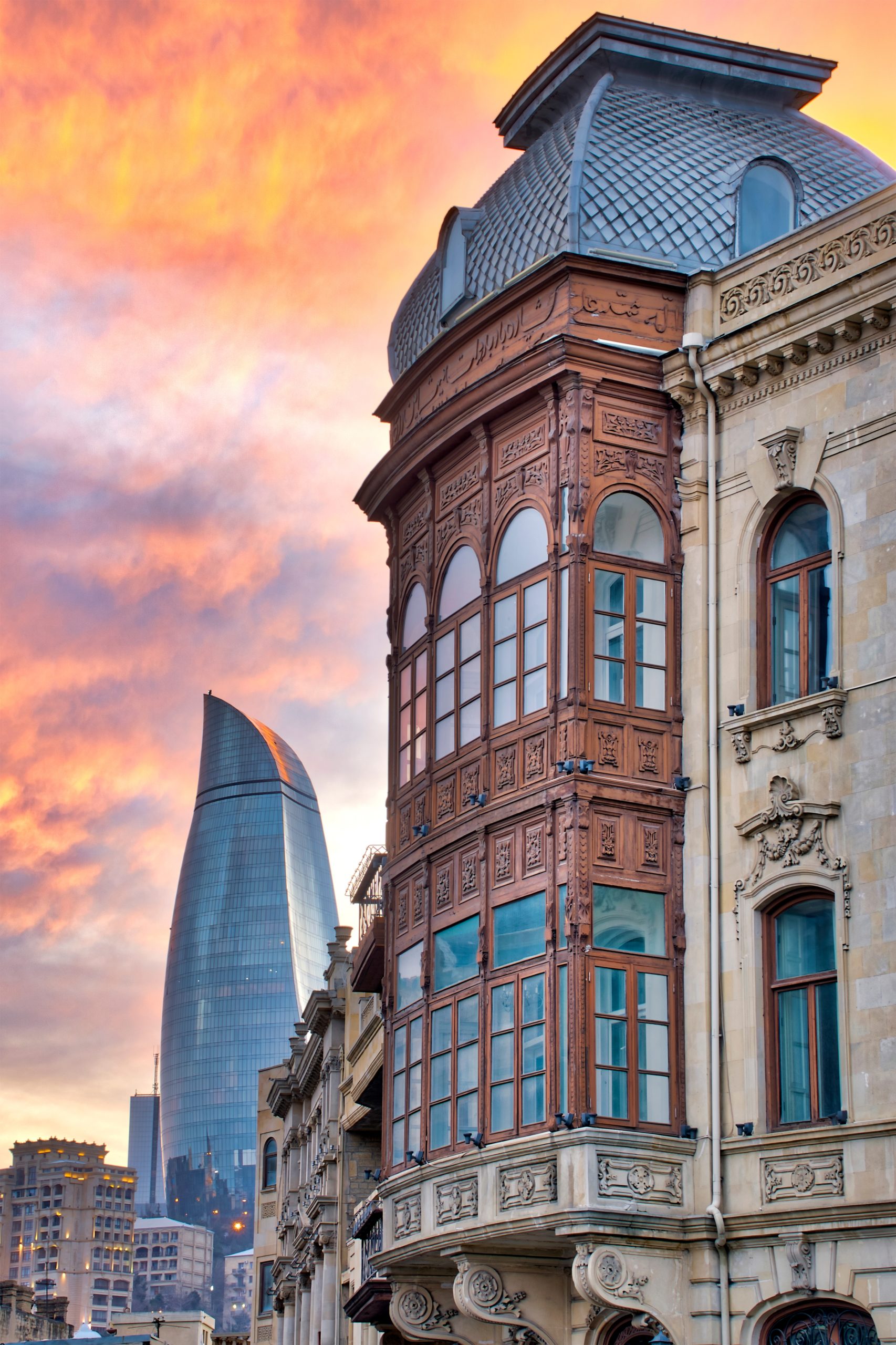
Street of Icheri, Baku, Azerbaijan. Photo: Only Fabrizio/Shutterstock
U.S. appoints New OSCE Minsk Group Co-Chair
U.S. Secretary of State Antony Blinken has appointed Ambassador Philip T. Reeker to serve as U.S. OSCE Minsk Group Co-Chair and Senior Advisor for Caucasus Negotiations. Reeker will also be the lead U.S. delegation negotiator at the Geneva International Discussions (GID).
At the time, the president of Azerbaijan announced that the conflict no longer existed, that it had been resolved by military means, and the Minsk Group itself had “died, and the resuscitation of the OSCE Minsk Group is impossible.” Meanwhile, the Armenian authorities consistently emphasise the “importance of using the institution and experience of the OSCE Minsk Group co-chairing” and expressed readiness to continue the dialogue with Azerbaijan in this fashion.
Moreover, the Armenian authorities emphasise the role and necessity of involving the Minsk Group in negotiations not only regarding the Karabakh conflict but also on the issue of signing a peace treaty with Azerbaijan.
Reeker is a career U.S. diplomat who recently served as U.S. Acting Assistant Secretary of State for European and Eurasian Affairs.
Sources:
- MIRZOYAN Armen, Hetq.am, „U.S. Appoints New OSCE Minsk Group Co-Chair“, https://hetq.am/en/article/147636
- JAM News, „Azerbaijani President Ilham Aliyev: ’OSCE Minsk Group cannot be revived, it is dead’“, https://jam-news.net/azerbaijani-president-ilham-aliyev-osce-minsk-group-cannot-be-revived-it-is-dead/
Russia, Iran and Azerbaijan agree to simplify transit traffic
The three countries signed a memorandum on the facilitation of customs transit transportation during the tripartite meeting held in Tehran. “The memorandum among Russia, Iran and Azerbaijan on simplification of transit transportation was signed in Tehran on August 22. The Russian side was presented during talks by the head of the Federal Customs Service Vladimir Bulavin,” the press service of the Russian trade representation said. “This document is to promote simplification and acceleration of customs procedures passing by participants in the foreign economic activity,” it added.
During the meeting, it was noted that newly created roads and logistics centres in the liberated territories of Azerbaijan would boost the country’s transit opportunities. According to the memorandum, the parties plan to more actively apply the electronic information exchange system to facilitate customs procedures.
On January 25, the foundation of a new bridge over the Astarachay River on the Azerbaijan-Iran border was laid. The 89-meter-long and 30-meter-wide bridge is expected to be completed by the end of the year. The foundation of the International North-South Transport Corridor was laid based on an intergovernmental agreement signed between Russia, Iran, and India on September 12, 2000. In total, 13 countries have ratified the agreement, including Azerbaijan, India, Iran, Russia, and Turkey.
Meanwhile, Azerbaijan participated in a tripartite meeting in Tbilisi with representatives of Georgia and Turkey to discuss the expansion of the so-called middle corridor. The participants of the meeting noted that the importance of the transit-transport corridor connecting Asia and Europe and the question of its development is increasing in light of the recent political-economic events is becoming one of the most attractive routes connecting the East and the West.
“The cooperation of Turkey, Georgia and Azerbaijan in the transit, transport and logistics direction is very important. Concrete decisions were made at the meeting, which will certainly contribute to the competitiveness of the corridor in the medium and long term. We have discussed the current, specific problems, and solutions have been drawn up in order to speed up cargo turnover, which will allow us to transport even more cargo using the infrastructure of Georgia, Azerbaijan and Turkey, and finally, to create a real alternative to the existing transit and transport routes,” said the Minister of Economy of Georgia, Vice Prime Minister Levan Davitashvili.
Sources:
- Caucasus Watch, “Azerbaijan, Iran, and Russia Sign Memorandum on Facilitation of Customs Transit Transportation“, https://caucasuswatch.de/news/5889.html
- Caucasus Watch, „Azerbaijan, Georgia, and Turkey Talk About Expansion of the Middle Corridor“, https://caucasuswatch.de/news/5900.html
- TASS, „Russia, Iran and Azerbaijan agree to simplify transit traffic — trade representation“, https://tass.com/economy/1496689
Mikheil Saakashvili to leave Georgian politics
According to lawyer Valeri Gelbakhiani, ex-Georgian president Mikheil Saakashvili has left the United National Movement (UNM) and Georgian politics. Gelbakhiani said on August 4 that the former president’s political choices are exhausted and that his primary objective is to preserve his life, writes Caucasus Watch.
Mikheil Saakashvili informed Gelbakhiani that he travelled to Georgia to prove he was not a coward and was not evading the law. “The government has a responsibility to preserve human life, and no physician knows the right formula for Saakashvili’s medication,” he continued. “Saakashvili is not iron-based. As a person, he needs support. Everyone should act if they want Misha [Saakashvili] to live,” Valeri Gelbakhiani stated.
Nika Melia, the Chairman of the UNM, said that the process is already hurting the opposition. “His position and attitude are important to me and to you as well. It’s just that what is happening now waters Ivanishvili’s mill. Saakashvili will be visited by a representative of our party tomorrow. However, I perceive the context very well from many points of view, and I do not want, even from my very correct position, to interfere in sending Mikheil Saakashvili abroad. I have no right,” Melia emphasised.
Georgian Parliament Speaker Shalva Papuashvili on Wednesday welcomed reports of former President Mikheil Saakashvili planning to retire from political life, saying Saakashvili’s presence in domestic politics was “unlawful” as the former president held Ukrainian citizenship and chaired the Executive Committee of the Ukrainian National Reforms Council before being arrested in the Georgian capital last year. Saakashvili’s political activities have nothing to do with his conviction and charges”, Papuashvili said, emphasising that “Saakashvili’s every appearance in Georgian politics, who is no longer a Georgian citizen, was an intervention in Georgia’s internal issues”.
Meanwhile, on August 4, the same day, two parliamentary opposition groups, the Citizens and Girchi parties released a joint letter calling on the imprisoned former President Mikheil Saakashvili to withdraw from politics and urging the former Prime Minister Bidzina Ivanishvili to retake political office in a bid to ease domestic political polarisation “hampering” Georgia’s European Union membership process.
Speaking about the 12-point conditions of the European Commission for Georgia’s European Union membership candidate status, six MPs of the two political groups stressed that Saakashvili’s presence in Georgian politics “created serious obstacle” for the fulfilment of the first condition of the EU, referring to the depolarisation of a domestic political environment.
In comments, the MPs stated that Saakashvili’s retirement from the country’s political life would also allow the United National Movement opposition party, founded by Saakashvili, to transform itself into a “healthier” political force.
In remarks over Ivanishvili, who left Georgian politics for the second time last year, the parties suggested that the political responsibility should be taken by “those who make decisions or have all the resources to make decisions”. The MPs also called for the adoption of the constitutional amendments, which allowed a two per cent election threshold and a fully-proportional electoral system for the 2024 parliamentary elections.
Sources:
- Caucasus Watch, „Mikheil Saakashvili Leaves Georgian Politics“, https://caucasuswatch.de/news/5793.html
- Agenda.ge, „Opposition groups call on ex-Pres Saakashvili to quit politics, former PM Ivanishvili to retake office in a bid for depolarisation“, https://agenda.ge/en/news/2022/2967
- Agenda.ge, „Parliament Speaker would welcome “foreign citizen” ex-Pres Saakashvili quitting Georgian politics“, https://agenda.ge/en/news/2022/2958
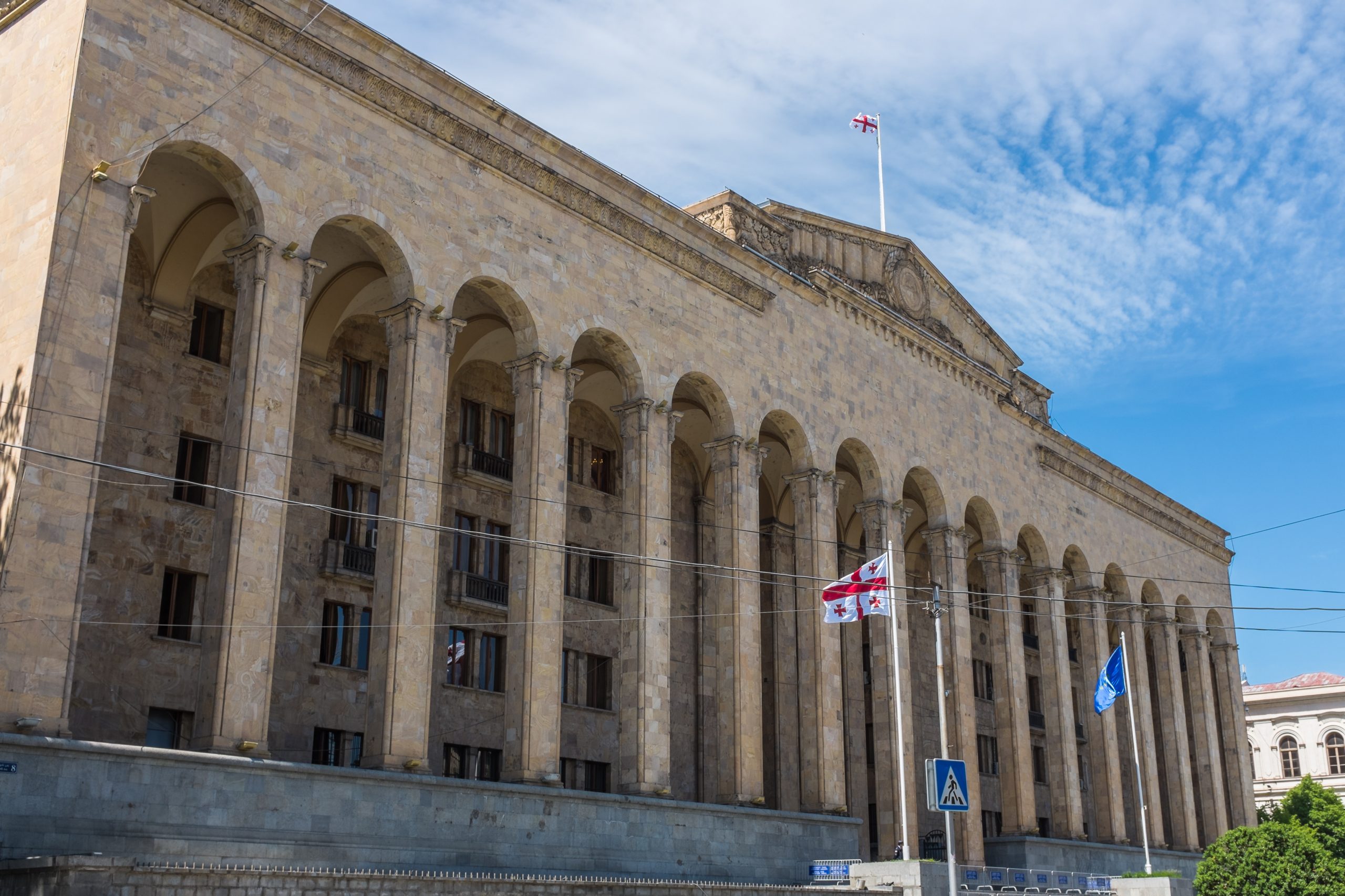
Georgian Parliament. Photo: Phillip Willcocks/Shutterstock
Bzhania claimed Abkhazia wanted to join the Union State with Russia
In an August 25 interview with Russian media personality Vladimir Solovyov, who has close ties with the Kremlin, Abkhaz leader Aslan Bzhania expressed the region’s readiness to join the Union State of Russia and Belarus, reports Civil.ge. Meanwhile, according to Abkhazian media, the Sokhumi airport is being transferred to Russia.
Per Sukhumi-based apsnypress, Bzhania stated, “In the case of such a prospect as the Union State of Russia, Belarus, and other states that would like to join this union, we would be happy to support this idea and be full members of this state.” “The idea [of the Union State] is close to us, close to the people of Abkhazia, [and] this is in our national interests,” he emphasised.
Per the Abkhaz de facto leader, Abkhazia “understands the need for a strong alliance with the Russian Federation in the new reality, when the unipolar world has collapsed.” Russian State Duma deputy Konstantin Zatulin commented that Abkhazia’s entry into the Union State would create “new conditions for a number of issues”, including the simplification of crossing the Abkhazian-Russian border, following the example of the Russian Federation and Belarus. The latter is something that many in Abkhazia especially welcome, given hours-long lines at the checkpoint on the Psou River, writes JAM News.
Zatulin mentioned another consequence of Abkhazia (potentially) joining the Union State. He said that “it will be easier to agree on the possibility of Russians buying land in Abkhazia.” He also criticised the opponents of this idea in Abkhaz society:
“The opposition of Abkhazia is trying to sew doubt. They say, if this is allowed today, then tomorrow, the Abkhaz will cease to be the masters of their country. However, it is clear that no one will take away the land from Abkhazia. And this kind of fear actually impedes the development of Abkhazia.”
According to Abkhazian legislation, the land is not up for sale at all. Abkhazian laws also prohibit the sale of real estate to foreigners, including Russians, stressed the information portal. At the same time, local media informed that the Russian company Basic Element Ltd., which is registered in the Virgin Islands and affiliated with the Russian oligarch Oleg Deripaska is a new investor in Sukhumi airport.
According to an Abkhazian media outlets, on August 11, at the meeting held in Sokhumi between the ministers of economy of Russia and Abkhazia, the topic of the restoration of Vladislav Ardzinba Airport in Sokhumi was discussed, but under the following conditions: the terms for its realisation, as well as the right to control the runways of the aircraft and air operations facilities, remain under Abkhaz control. However, the Russian side took upon itself the restoration and sale of other complexes. According to the Ministry of Economy of Abkhazia, “This is a joint project with detailed goals.” The Russian minister also inspected the work started to restore the airport, which has been often reported to start operating in 2024 with Russian investment.
As Caucasus Watch reminds, Sukhumi Airport and its airspace have been closed since 1993, are not certified, and have not been assigned a four-digit location code by the International Civil Aviation Organization (ICAO), which recognises Abkhazia as a constituent part of Georgia. Accordingly, the Ministry of Foreign Affairs of Georgia, as well as the Civil Aviation Agency, state that “international flights cannot be carried out in the region of occupied Abkhazia, as this is against international law, ICAO statutes, and Georgian legislation.”
“I have repeatedly become the subject of criticism. However, times are changing, and tourism is becoming an additional stimulus. The code of the Russian airport will probably be used for the Sukhum [Sokhumi] airport”, said Aslan Bzhania, the president of the de facto republic of Abkhazia, in response to the Georgian side.
Sources:
- Civil.ge, “Bzhania: Abkhazia Ready to Join Union State of Russia and Belarus“, https://civil.ge/archives/506089
- JAM News, „Abkhazia will join Union State with Russia, and Russia will buy land in Abkhazia?“, https://jam-news.net/abkhazia-will-join-union-state-with-russia-and-russia-will-buy-land-in-abkhazia/
- Caucasus Watch, „Sokhumi Airport Reportedly Handed Over to Russia“, https://caucasuswatch.de/news/5887.html
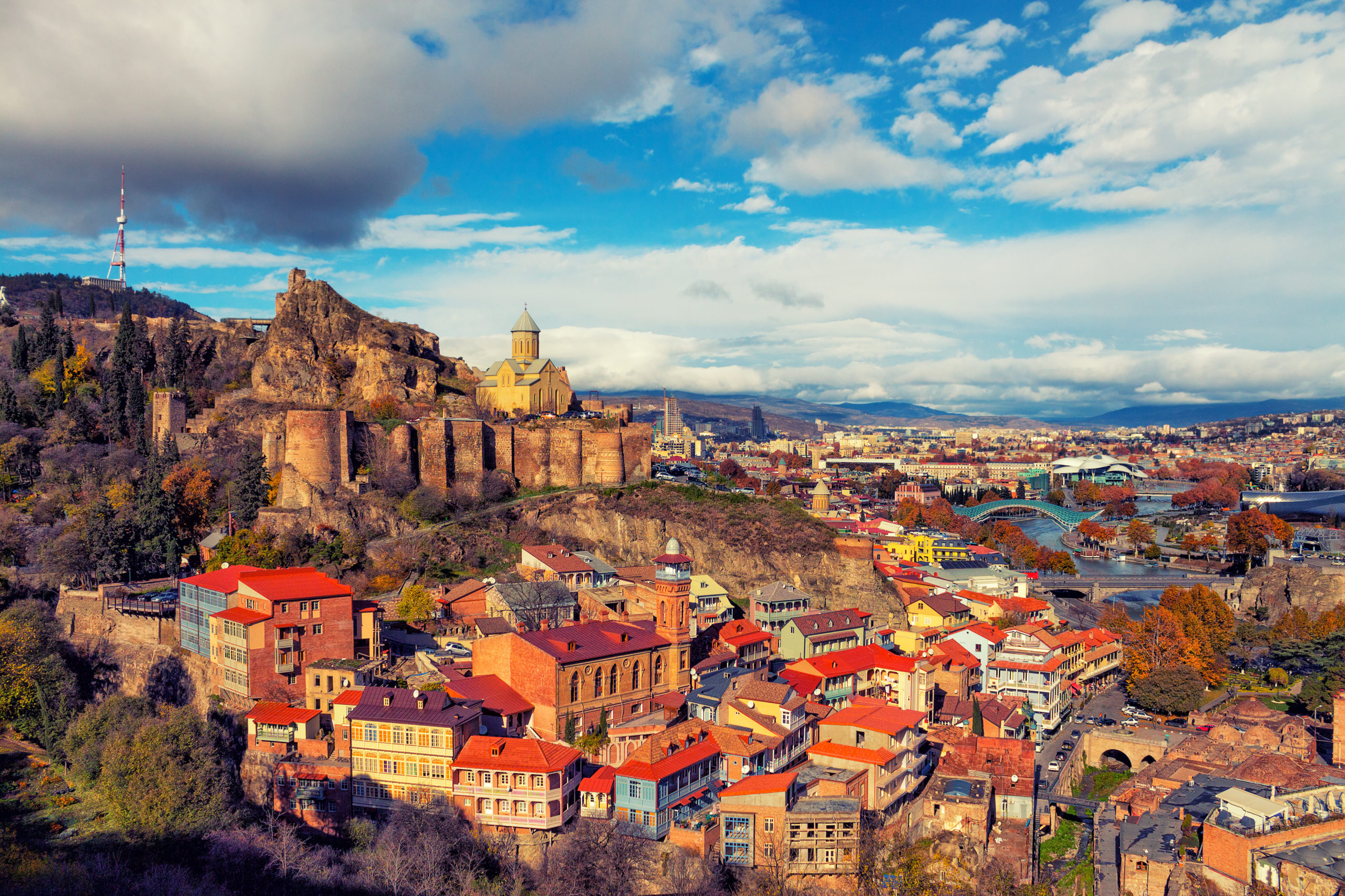
Tbilisi City Panorama, Georgia. Photo: Matej Z/Shutterstock
Communications Commission Fines Mtavari Arkhi, Warns TV Pirveli, Formula
The Georgian National Communications Commission (GNCC) satisfied the complaint filed by the ruling Georgian Dream party against three opposition TV stations – Mtavari Arkhi TV, Formula, and TV Pirveli – for airing a clip of “Going Home to Europe” by fining Mtavari Arkhi TV with 118.688,67 Lari (42.319,85 USD) and issuing a written warning to the latter two, reports Civil.ge.
The GNCC said that Mtavari Arkhi aired three clips on November 17-18 in contravention of the Law on Broadcasting. One of the three videos features photos of the representatives of the Penitentiary Institution and judges involved in criminal cases against the imprisoned third president of Georgia, Mikheil Saakashvili. Audio narratives accompany each photo, saying the individual “is killing Saakashvili”, calling for Saakashvili to be freed.
The second video by the Shame (geo: Sirtskhvilia) movement featured photos of current and former members of the ruling Georgian Dream party assembled into a photo mosaic of Vladimir Putin. The photo caption says “#Shame”.
The third video featured statements by the ruling GD party members, President of Georgia Salome Zurabishvili and Tbilisi Mayor Kakha Kaladze, about Saakashvili’s hunger strike. There is a voice-over narration saying the individuals are “killing” [Saakashvili].
Citing the Law of Georgia on Broadcasting, GNCC said that broadcasters are obliged to ensure that the advertisement it submits complies with the Georgian legislation and does not allow inappropriate advertisements to be aired beyond the pre-election period, explains agenda.ge.
Sources:
- Civil.ge, “Communications Commission Fines Mtavari Arkhi, Warns TV Pirveli, Formula“, https://civil.ge/archives/505649
- Agenda.ge, “Communications Commission fines Mtavari Arkhi for airing political ads beyond pre-election period“, https://agenda.ge/en/news/2021/3737
De facto president of South Ossetia Dismisses defence head
Alan Gagloev, leader of de facto South Ossetia, dismissed the de facto minister of defence Vladimir Pukhaev and de facto deputy minister Igor Alborov on August 12. Tskhinvali-based RES cited Gagloev’s press secretary Natalya Bosikova as saying that the decision is related to the “incident involving the beating of a citizen of South Ossetia…”
As Caucasian Knot informs, Azamat Djigkaev, a resident of Tskhinvali, was beaten by special forces fighters. The man has not filed a complaint to the law enforcement bodies, but an investigation into his case is underway. According to a video posted on the “Bonvaernon” Telegram channel, Azamat Djigkaev was attacked by at least ten people.
“According to participants of the incident, a misunderstanding between the victim and his friends arose at a wedding party in late July. All of them are employees of the special forces of the Ministry of Defence (MoD) of South Ossetia. The victim tried to separate the guys,” the Prosecutor’s Office explained, adding that one of the attackers participated in the beating of Inal Djabiev in 2018.
Relatives of Azamat Djigkaev were afraid for his life. “Fifteen people attacked him, and his whole face was covered with blood. He is the only son of his mother,” said a female relative of the victim. Azamat Djigkaev participated in the protest action held by the Inal Djabiev’s family in the winter of 2020. He is a member of the public organisation “Civic Platform”, journalist Arzu Mamedova reports on her Telegram channel.
Sources:
- Civil.ge, „Tskhinvali Leader Dismisses Defense Head“, https://civil.ge/archives/504349
- Caucasian knot, the beating of a resident of Tskhinvali by militaries reminds of Djabiev’s case“, https://www.eng.kavkaz-uzel.eu/articles/60974/
Opposition calls on Georgian authorities to introduce visas for Russians and Belarusians
The oppositional “Lelo “party claims that Georgian authorities should introduce a visa regime for citizens of Russia and Belarus, while the term of a tourist visa should not exceed 30 days, reports the Caucasian Knot.
Georgia is now particularly vulnerable to existing threats, while the inflow of migrants from Russia and Belarus has got “out of control,” the “Lelo” Party proclaimed in its August 2 statement. “The number of visitors who have come from the Russian Federation has increased dramatically. (…) The relevant bodies are unable and don’t control citizens (of Russia),” the “Georgia Online” has quoted the party’s statement.
On August 3, the petition for the introduction of a visa regime in Georgia for citizens of Russia and Belarus was posted on the “manifest.ge” portal. “A visa regime should be introduced for citizens of Russia and Belarus, according to which citizens of Russia and Belarus will not be allowed to stay on the territory of Georgia for more than three months during a year, which will provide citizens of Russia and Belarus with the opportunity to enter Georgia only for tourism purposes,” states the petition. Over 14,000 votes were received on the first day by the given petition.
On August 4, Irakli Kobakhidze, the Chairman of the ruling Georgian Dream party, rejected the calls of the Lelo for the Georgia opposition party to impose visa requirements for Russian and Belarusian citizens to prevent security threats in Georgia in the backdrop of Russia’s war in Ukraine by calling it a “deliberate, xenophobic campaign that is absolutely disgraceful”. In his comments on the matter, Kobakhidze stressed that there was no place for “xenophobia” in Georgia.
Sources:
- Civil.ge, „Tskhinvali Leader Dismisses Defense Head“, https://civil.ge/archives/504349
- Caucasian knot, the beating of a resident of Tskhinvali by militaries reminds of Djabiev’s case“, https://www.eng.kavkaz-uzel.eu/articles/60974/
Ivanishvili supporters accuse the US of attempting a coup in Georgia
Four Georgian MPs and staunch supporters of Bidzina Ivanishvili have accused the US of attempting to orchestrate a coup in Georgia. The actions of the US ambassador to Georgia, Kelly Dena, “strengthen the faith of people that the radical agenda of the radical [internal] opposition is coordinated by the US Embassy,” the state of the ruling party “Georgian Dream” said in a statement by the former deputies of the ruling party ” who left the party in June – Dmitry Khundadze, Mikhail Kavelashvili and Sozar Subari.
The authors said in their statement that the US Embassy in Georgia was behind almost every political controversy in the country since at least 2018. They added that the US was coordinating „the radical agenda of the radical opposition“ and that their „revolutionary scenario“ in Georgia would continue. „It is evident […] that the objective of both a coup d’état and the launching of a second front [of war with Russia] remain vitally relevant“, their statement read.
While government officials and their supporters have grown increasingly hostile to the US and EU, this is the first instance in which those with close ties to the government have accused the US of seeking a change of power in Georgia, writes OC Media.
Moreover, the MPs accused the EU Ambassador to Georgia, Carl Hartzell, of seeking to harm the Georgian Dream before the 2021 local elections by planning to refuse Georgia a 75 million EUR aid package. „Georgian Dream acted promptly here as well, refusing the loan and thwarting the plan of the embassy“. At that time, Georgian Dream denied they faced a prospect of being denied the aid for unimplemented institutional reforms, arguing instead that the „loan“ would be an additional burden.
The MPs also said the US „ensured that [President Salome Zurabishvili’s] two children received quick promotions“in order to turn her against the government. Zurabishvili’s daughter is the White House correspondent for France 24, while her son is a career French diplomat.
Sources:
- KINCHA Shota, OC Media, „Ivanishvili supporters accuse the US of attempting a coup in Georgia“, https://oc-media.org/ivanishvili-supporters-accuse-the-us-of-attempting-coup-in-georgia/
- Silkway News, „US Ambassador of Georgia, is accused of coordination of revolutionary scenario“, https://www.silkway.news/us-ambassador-of-georgia-is-accused-of-86792/
For the full text of the statement, see:
- Georgia Today, Joint Statement by MPs: Sozar Subari, Dimitri Khundadze, Mikheil Kavelashvili, and Guram Macharashvili, https://georgiatoday.ge/joint-statement-by-mps-sozar-subari-dimitri-khundadze-mikheil-kavelashvili-and-guram-macharashvili/

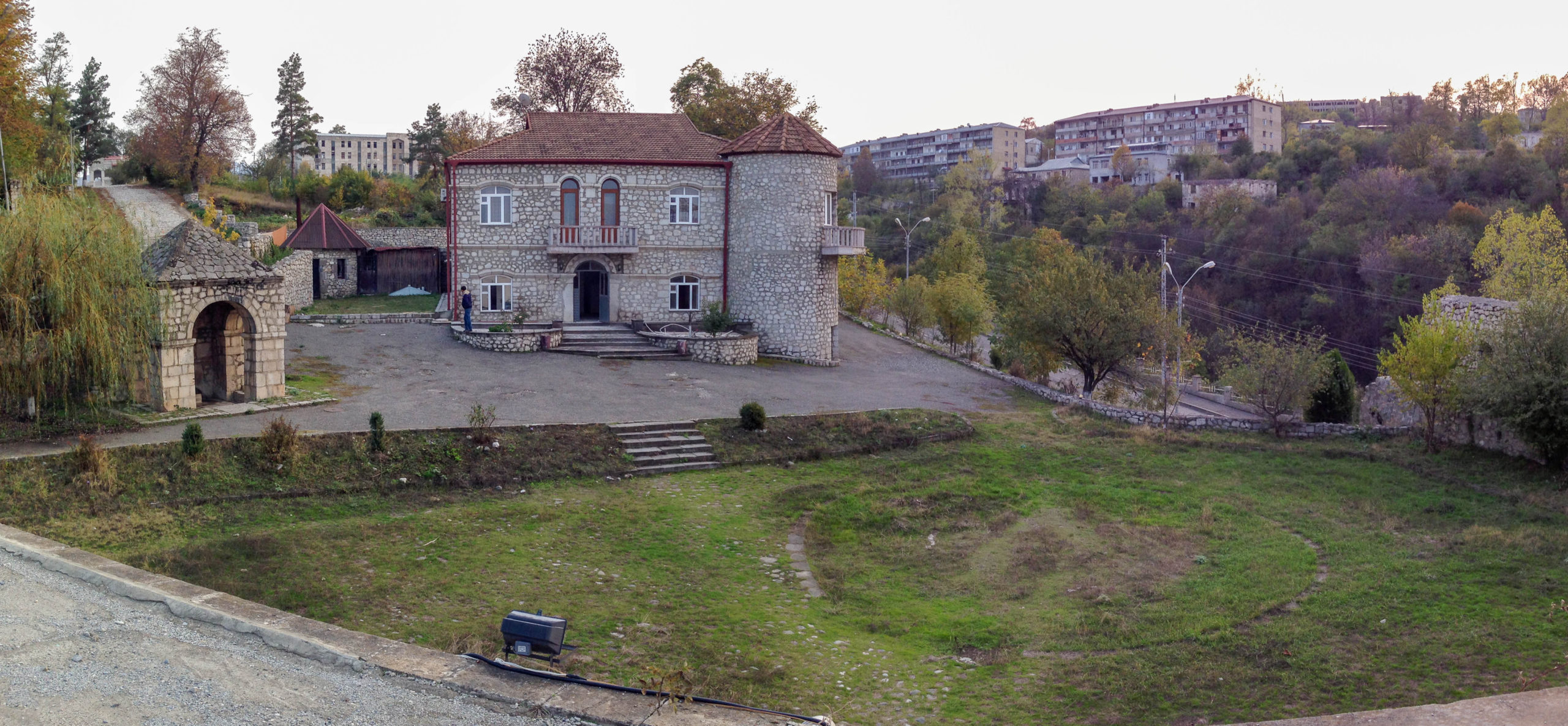
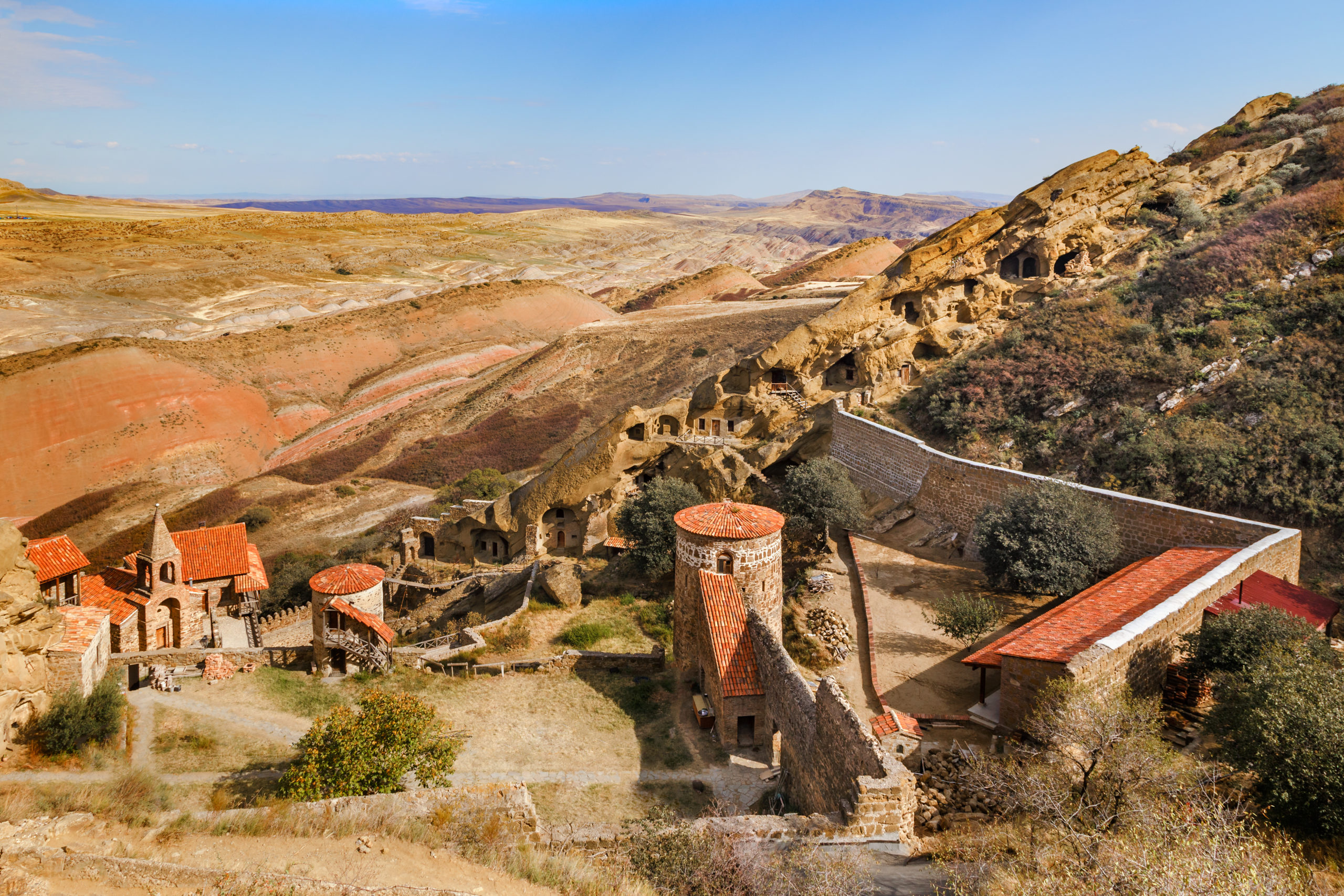
Contact us